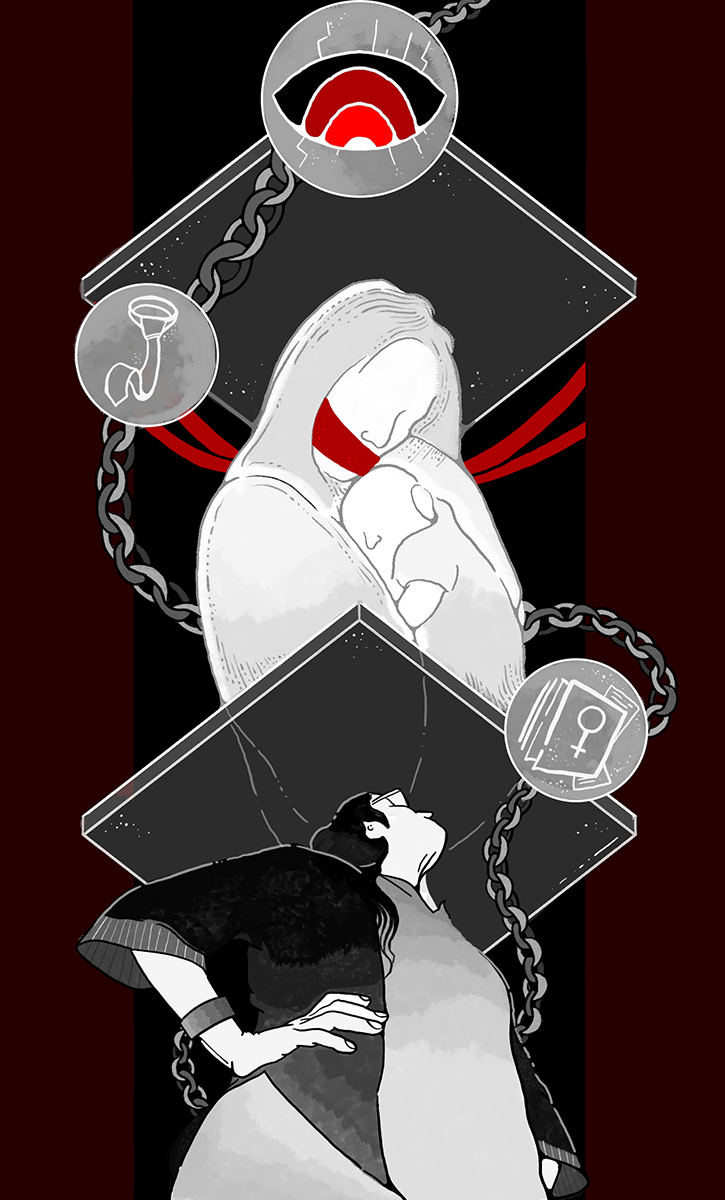Institutional Ethnography
Scholarly Definition
A distinctive Canadian school of sociological analysis that took shape during the 1970s through sociologist Dorothy Smith’s work on the social organization of knowledge. The aim is to generate analyses of how ruling or governing gets done in the workings of the media, legal, medical, educational, and immigration systems. The understanding is that social life is produced, reproduced, organized, and coordinated by texts, such that these are highly important objects of study.
Artistic Statement
A central feature of how we experience our lives, how our societies are governed, is through patriarchy as a social relation and set of practices. This illustration is an adaptation of sociologist Dorothy Smith’s 2006 “Small Hero” line drawing, which is designed to help us dial our attention to the social organization of experience. In my image, I have drawn a woman with hands on her hips. She wants to understand the social origins of her personal struggles, and so she sets out on an institutional ethnographic quest. She looks up and begins to unpack the functioning of state bureaucracies, language, labor market, class relations, gender relations, family relations, and so on. The glare from the bright red light above her sheds its intensity because through her institutional ethnography, she develops descriptive analyses that answer her questions about the social production of her personal troubles.
Digital art © Ujwal Mantha



